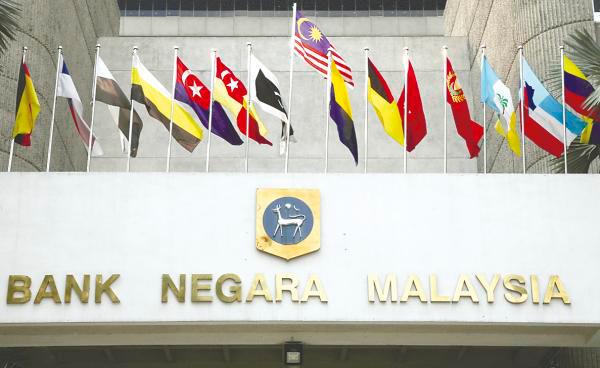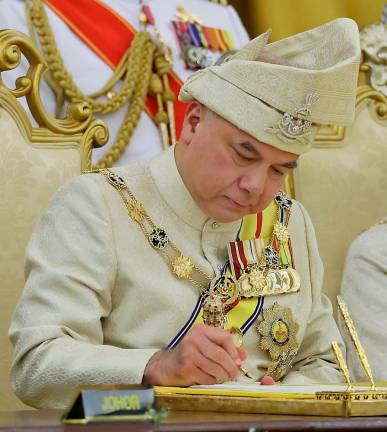AMID the global financial turmoil and conflicts, the Malaysian ringgit has declined to new lows against the Singapore dollar and the US dollar.
The already widespread concerns regarding the nation’s economic resilience and strategic response are escalating. Some are even drawing parallels with the Asian Financial Crisis (AFC).
While we cannot deny that the ringgit’s slide is no small matter, with the impact felt through the rising cost of goods and materials across the board, we have seen unprecedented and extraordinary levels of foreign direct investment (FDI) unlike during the AFC, when the opposite was prevalent.
The Malaysian economy is showing signs of resilience and growth, characterised by moderate inflation, a stable unemployment rate and expectations of further foreign and domestic investments.
This is in contrast to the period of the AFC, which was marked by economic contraction, higher unemployment, reduced investments and divestments as well as deflationary pressures.
Today, Malaysia holds strong economic fundamentals and has resilient financial structures, therefore, the current challenges require a more nuanced understanding. It is a far cry from the crisis we saw in the late 90s.
Nonetheless, the currency challenge is something we must address. The strategic imperative here is to strengthen demand for the ringgit to bolster its value.
To do so, Malaysia must consider adopting a series of tactical policies:
Fiscal policy: Implementing fiscal policies that stimulate economic growth can enhance the currency’s value. This includes reducing government debt, increasing infrastructure spending and creating a favourable business environment to attract foreign investments.
Boosting public confidence: The value of a currency is significantly influenced by public perception. Thus, fostering political stability, transparent and consistent government policies can enhance confidence in the ringgit. All malignant speculations by irresponsible quarters must be stamped out.
Stronger investments are urgently needed and they should be accompanied by improved communication. This is crucial to instil confidence, consistency and clarity.
Remunerating expatriates: Currently, the practice of remunerating expatriates in their home currency is widespread. According to Mercer, 27% of expatriates in Malaysia receive a partial salary split between their home and host currencies, with varying percentages. Additionally, 31% of all expatriates, with 51% from the US, are fully remunerated in their home currency.
Transitioning towards mandating expatriates’ salaries to be deposited into Malaysian accounts but allowed to be denominated in their home currencies needs to be considered. This step is crucial during this period of FDI and technological transfer facilitated by expert expatriates.
While such an intervention may be unpopular, it aligns with broader economic goals and is deemed necessary for fostering economic growth and stability. This includes enhancing local economic activity, stabilising the ringgit and bolstering the nation’s financial health.
However, this policy shift requires meticulous planning and execution to avoid it becoming a push factor for investment realisation.
E-payment platforms for tourists: Promoting or mandating the use of local e-payment platforms by foreign tourists can directly boost demand for the ringgit, reduce transaction costs and improve data collection, despite potential adoption and compatibility challenges.
While security concerns remain, if executed effectively, this initiative can serve as a significant tool in bolstering our defence against the ongoing assault on our ringgit.
Promoting foreign education: Making Malaysia a more appealing destination for foreign students can increase the demand for domestic currency, given the high demand for Malaysian postgraduate programmes among foreign students, especially from China and the Middle East.
However, this must also be in tandem with reforming the higher education architecture to retain our best local talents and preventing their migration to foreign elite universities, which often occurs due to limitations or shortcomings in local institutions.
Foreign exchange intervention: Cognisant of Malaysia’s strong economic fundamentals as the foundation of our economy, strategic interventions in foreign exchange markets can serve as a monetary last resort to enhance the value of our currency. However, Bank Negara Malaysia (BNM) must first establish a confidential “red line”, known only to the institution.
While this short-term strategy can help mitigate rapid devaluation, combat volatility and address imported inflation, its long-term sustainability is uncertain due to limited reserves.
Nevertheless, it remains a viable intervention that should not be overlooked during these challenging times. It is essential to ensure that the exchange rate of ringgit accurately reflects Malaysia’s robust economic fundamentals.
Leveraging MM2H deposits: The revamped Malaysia My Second Home (MM2H) programme, which requires cash deposits in exchange for medium to long-term residential visas, can serve as a currency stabilisation fund, providing additional support to the ringgit.
Raising interest rates can be a potential remedy and is perhaps the most straightforward action to implement. However, the associated side effects of this economic prescription, such as elevated borrowing costs for businesses and individuals, a potential deceleration in economic growth and a subdued property market can cast a long shadow.
The decision by BNM to hike interest rates to strike a balance between stabilising the currency and maintaining economic vitality can be a contentious strategy, one that may be better left on the shelf for now.
While the ringgit’s depreciation against major currencies is alarming, it does not parallel the AFC, thanks to today’s different and much stronger economic fundamentals.
This situation underscores the need for close collaboration between the government and BNM, working in tandem with MPs to unite efforts and strategies aimed at effectively addressing this crisis.
The writer is the MP for Ipoh Timor, a Consultative Council Foreign Policy member and Parliamentary Special Select Committee member. Comments: letters@thesundaily.com










